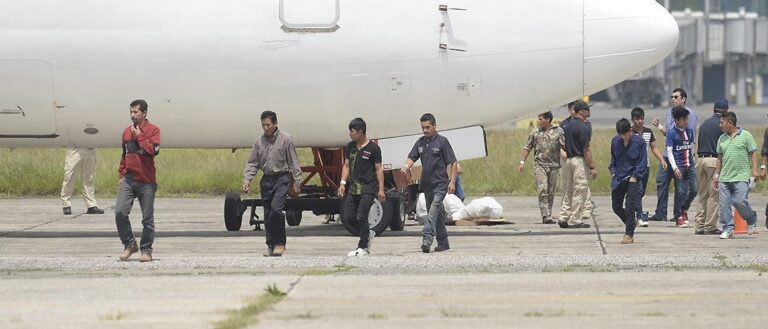In a startling revelation that has drawn international attention, Muslim men deported from India have recounted harrowing experiences of being forcibly thrown into the sea during the government’s recent deportation campaign. These firsthand accounts, detailed in reports by The Washington Post, shed light on the brutal measures employed amid India’s intensified efforts to repatriate undocumented migrants. As the fallout from the deportation drive continues to unfold, questions are mounting over the treatment of those caught in its wake and the broader implications for human rights in the region.
Accounts of Muslim Men Alleging Forced Sea Deportations in India
Several Muslim men detained along India’s coastal regions have come forward with harrowing testimonies of being forcibly taken from their homes, blindfolded, and subjected to violent treatment before being pushed into the sea in makeshift boats. Eyewitness accounts depict chaotic scenes where victims were left stranded miles offshore, with little regard for their safety or survival. The allegations spotlight a disturbing pattern amid the government’s intensified deportation campaign targeting minorities, raising urgent questions about human rights violations and the rule of law.
According to survivors, the operations were conducted at night under tight secrecy, with victims fearing retaliation if they spoke out. Local NGOs have documented multiple incidents where boats were overloaded, and authorities ignored cries for help, effectively turning these deportations into life-threatening expulsions. The following table summarizes key elements from first-person interviews collected by human rights groups:
| Testimonies | Details |
|---|---|
| Location | West Bengal, Kerala, Tamil Nadu |
| Number of Men Accounted | Approx. 50 |
| Common Methods |
|
| Reported Consequences | Physical injuries, psychological trauma, missing persons |
Human Rights Concerns Raised Over Government Deportation Practices
Accounts from deportees reveal alarming tactics reportedly employed during recent government-led immigration enforcement operations along India’s maritime borders. Several Muslim men, who survived forcible removals, described instances where they were physically manhandled and in some cases deliberately thrown into the sea by authorities, raising urgent questions about the respect for basic human rights and the legality of these actions under both domestic and international law.
Human rights organizations have listed the following core concerns regarding these deportation practices:
- Excessive use of force: Reports of physical intimidation and violence against detainees.
- Lack of due process: Individuals deported without proper judicial review or opportunity to seek asylum.
- Endangerment of life: Risky methods of removal, including abandonment at sea, violating safety protocols.
- Religious and ethnic profiling: Targeting based on religious identity, raising concerns over discrimination.
| Reported Incident | Description |
|---|---|
| Physical Assault | Beatings during roundups on boats |
| Forced Ejections | Individuals thrown into open waters |
| Denial of Legal Aid | No access to lawyers or appeals |
Calls for Transparency and International Oversight in India’s Deportation Drive
In response to harrowing testimonies from Muslim men who allege being forcibly thrown into the sea during deportation operations, human rights organizations and political leaders have intensified calls for greater transparency. These disturbing accounts underscore fears of systematic abuse under the guise of immigration control, raising urgent questions about the legality and humaneness of India’s current enforcement tactics. Activists demand that the Indian government publish detailed data on deportation practices and engage independent observers to ensure adherence to international human rights standards.
Key demands from international and domestic watchdog groups include:
- Immediate establishment of independent monitoring bodies to oversee deportation procedures.
- Full disclosure of the number of individuals detained, deported, and their treatment during these operations.
- Implementation of legal safeguards to prevent extrajudicial actions and ensure due process.
- Cooperation with the United Nations and other international entities to verify compliance with global human rights norms.
| Concern | Impact | Requested Action |
|---|---|---|
| Unlawful Detentions | Violation of civil liberties | Enhanced legal oversight |
| Physical Abuse | Risk to life, trauma | Independent investigations |
| Lack of Transparency | Obstruction of accountability | Regular public reporting |
Closing Remarks
As India continues its intensified deportation efforts, the harrowing testimonies of Muslim men recounting their forced expulsions into the sea underscore the human cost of the campaign. These accounts raise pressing questions about adherence to international human rights standards and the treatment of vulnerable populations. As the situation unfolds, further scrutiny from global observers and advocacy groups will be critical in ensuring accountability and safeguarding the rights of those affected.




